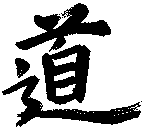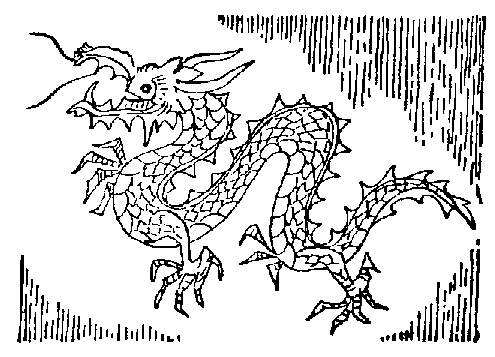 |
Taoism And The Taoist Arts |
|||
Background & History (2) |
||||
Background & History: The Taoist Arts: |
Religious Taoism
The Tao Te Ching is used as a holy book, Lao-Tzu worshipped as a saint and a number of Gods are praised. The Taoist religion developed, and still maintains, a belief in more supernatural elements, and thus would easily have followed on from the folk religion, ancestor worship and shamanism so common in early Chinese history. Early Religious Taoists believed in physical immortality, alchemy, magic and astrology, with a strong emphasis on symbolism and a healthy interest in sexual practices (Taoists through the ages have held strong beliefs as to the 'correct' ways to have sex in order to preserve and enhance the internal energy). These threads strongly influenced the development of the religion, and still hold sway today. In fact, most Chinese still maintain a belief in Taoist and Buddhist Gods, and many practice ancestor worship in addition. "Those who follow Tao declare that Gods do not exist.
To think this is blasphemous is to miss the point. Rather, those who follow
Tao seek a relationship with the divine in which there is no division"
Modern InterpretationsWith the recent interest in Eastern philosophy and religion Taoism has become quite trendy, and modern interpretations abound. Recent advances in the sciences are beginning to raise new ideas about the structure of reality, and many have parallels with Eastern thought. There has been a gradual shift away from reductionism, where things are understood by breaking them down and looking at their component parts, towards a more wholistic view. Quantum physics in particular is changing the way the scientific community view the world. There are no certainties at a quantum level, and the experimenter cannot help being part of the experiment. This new view of nature is one in which everything is linked, one in which man is a part of the world, not above and beyond it. It used to be thought that man could control nature with science, now it is being suggested that man and his science are too much a part of nature, and there are powerful and subtle forces that he cannot control. Many of these ideas are common to Eastern beliefs, and some supporters of Eastern systems are sitting back and looking smug, but others claim that the ideas are being misunderstood. Many bemoan the 'modernisation' of ancient wisdom and seek to go back to the 'original teachings' - for Taoists this means Ancient China. Yet Taoism is not Chinese - as a system of thought it is universally applicable and beyond culture. However, many of the attempts to modernise or update the ancient teachings seem to have missed the point and the parallels between Western Science and Eastern philosophy are often flawed. It seems to be a paradox, Taoism is about change but the teachings are timeless. It is inevitable that views of Taoism have changed, after all our world has changed hugely since Taoism had its birth. Modern Taoists must apply the ancient teachings to everyday experiences, and in the end it is up to every individual to discover his or her own Way. That is Taoism, whether it seems ancient or modern, Western or Chinese. There can be no doubt that these two very different schools of thought can learn much from each other, and discussions of the differences have lead to new discoveries and ideas on both sides. The problem simply lies with the analysis of one set of ideas using the tools and methodology of the other. This is clearest in the field of Medicine - Chinese therapies are proven to be effective and work extremely well when applied within the Chinese framework, but a Western analysis that ignores the framework will probably not yield positive results. For instance, Western analysis of Chinese herbs has revealed that many have blood-pressure reducing effects. This is of no import to the Chinese doctor, who will be more concerned about the properties of the herb in terms of yin or yang, hot or cold etc. The herbs that are to be used will be selected on the basis of these properties, depending on the exact problem that the patient is suffering from (treating the patient, not the disease). Taking the herbs out of this context, and applying them in a Western sense ("This person has high blood pressure, we'll give him herbs A B and C because they all reduce blood pressure") will undoubtedly have poorer results. The problem with any attempt to link together Eastern and Western thought is that the basic principles are not only different but mutually exclusive. All of Western thought is based on the notion of rigid causality - A causes B causes C - there is no effect without an underlying cause. Hard though it is to understand, the Chinese do not, and have never had, this view. In the East, discussion of causality is somewhat meaningless, all things are related and out of the infinite complexity of their interrelations, patterns can emerge, things can change, but there is no ultimate cause. Put another way, everything is the cause of everything else. The ultimate aim and views of the world differ too - Western science believes that it is cutting down to the the truth. Its ultimate aim has always been to discover the 'answer', the so called 'theory of everything'. To the Taoist, however, there is no underlying set of causes or answers, there is simply the Tao, which is mysterious and unknowable.
|
|||
|
|
||||

